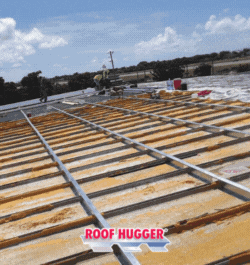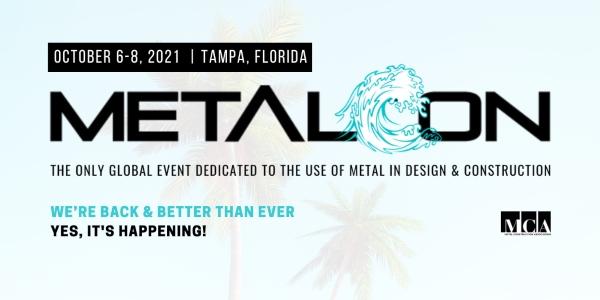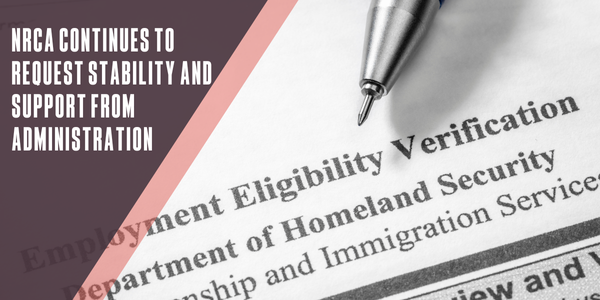How to Know When to Turn a Roof Over to Waterproofers

By Richard Spreen, President, Decktight Roofing Services, Inc. and Shredded Tire, Inc.
Changes in waterproofing occupied conditioned spaces (what used to be known as roofs) in the roofing industry.
Richard Spreen has worked as a roofing contractor for the last 32 years. Located in Miami, Florida, Spreen has seen many changes occurring in the roofing industry. He highlights one of the bigger changes as the encroachment of waterproofing being used for areas that were once roofs. Learn more about this change from an experienced contractor writing for other contractors.
What’s in a name?
In South Florida, areas designated for waterproofing have far more relaxed standards. Waterproofing is allowed to be used when a roof transforms into a terrace or planter but is still required to follow an NOA approved assembly. Over the past few years, I’ve witnessed waterproofing contractors installing liquid waterproofing (without slope or insulation) over occupied areas on some of the most expensive real estate in the world, without a permit. The response from one of the waterproofing contractors when I asked him about “why a permit wasn’t pulled” for the work, which was adjacent to ours, was, “we haven’t pulled a permit in 16 years.”
As a licensed Florida roofing contractor, can you imagine ever saying such a thing? Our license would be revoked. Yet, this statement was made at a job meeting with the owner’s reps, waterproofing consultants and a prominent general contractor present. Surprisingly, the only ones outraged by that statement were my team and me.
Witnessing this firsthand on one landmark project after another is frustrating, but more than that, it has created a challenge within our industry. When bidding against waterproofers for these coveted rooftop playgrounds, we as roofers are left with few competitive options. Since true roofing NOAs require uplift testing for the complete assembly (tile and turf included), R-Value and a slope to drain requirements along with Class-A UL fire approvals, we are automatically at a pricing disadvantage against waterproofers. Oftentimes, a waterproofing consultant’s “design” will involve a single product NOA or Florida Product Approval rather than an NOA based on an entire assembly. Furthermore, many of these “designed assemblies” involve topping slabs that have sloped finished surfaces with inherent slip and fall concerns as well as efflorescence of tile issues.
If we resign ourselves (as roofers) to the fact that we will never be competitive to waterproofers and ignore the rooftop terrace market, we will live with requests (on bid day) from general contractors to bid on “JUST the elevator and stair towers since the waterproofing has already been awarded.” That request is usually then followed by a request to “supply and install all the scuppers since their waterproofer doesn’t do that.”
This is happening right now on project after project as the waterproofing contracts are awarded in the very beginning of the project (many months before the roofs are even bid out) because a large portion of their work is below grade.
What can be done?
As an industry of roofing contractors, we must ask our roofing associations to apply pressure on regulatory agencies and require waterproofing standards to meet those of roofing standards above occupied or conditioned areas of the building. We must ask those difficult “where is your permit” questions at job meetings in front of the owner’s reps, general contractors and waterproofing consultants to be sure permits are issued on all occupied areas. And finally, as I have been doing for so many years now, pressure ALL of the roofing manufacturers to design full system NOAs for rooftop terraces and gardens that can compete with any full system NOAs from waterproofing manufacturers.
Here’s the rub
A lot of the manufacturers offer waterproofing and roofing product lines. Is there any incentive for them to develop new “roofing” assemblies when they see that their waterproofing business is growing? I do not fault them because they are all following the regulatory guidelines and are providing outstanding materials at competitive prices. After all, they are material manufacturers and the making and selling of their material is their core business, not necessarily designing for NOAs in the tiny areas of the planet that require them.
Is there an alternative?
A short story first. Five years ago, while working on the Brickell City Center project in downtown Miami, I became aware of the importance of LEED credits to the developer of the project. I was asked to turn more and more roof areas into vegetative roofs at a considerable upcharge for the distinct purpose of adding needed LEED points. As we were hauling many tons of dirt to irrigated rooftops with giant cranes, I realized then that nothing about this exercise was “Green.”
Around this time, I remember seeing a front-page photo on a local paper of a scuba diver loading an old tire onto a barge from a failed artificial reef project (Osborne Reef in Fort Lauderdale). Two million old tires were chained together and dumped into the ocean next to an active reef in 1971, but now the chains were breaking and the tires were smashing against the reef.
The point to this?
I wondered what would be done with these two million tires when it struck me that if these tires could be shredded and used in rooftop terraces, we could put the tires to good use and still obtain maximum LEED credits to the developer for their recycled content.
That very afternoon, I purchased a 2,000 pound sack of playground grade, shredded tires and began a two-year journey of product development. It followed that with three years of testing that resulted in two USA Patents and two Miami Dade NOA’s.
There is an alternative
It’s called Echo Roof Terrace and is manufactured by Shredded Tire, Inc. in Fort Lauderdale.
Shredded Tire, Inc. developed and tested a rooftop terrace and garden assembly involving Echo Block and Echo Flow that is presently utilizing SOPREMA SBS torch-grade products as the roofing/waterproofing component within our NOA for concrete and steel decks.
The goal was to establish a new and better standard for terrace roof assemblies. The NOA assembly includes 1/4-inch per foot slope to drain on finish roof membrane, a provision for as much insulation for R‑Value as the job requires, UL Class-A fire rating of the entire assembly (including artificial turf or tile) and most importantly, uplift testing with or without insulation, with or without vapor barrier, and inclusive of the entire assembly (including artificial turf and tile).
The most interesting attribute to this “roof system” is the fact that the finished walking surface is both flat and permeable.
The reality is that there is no equal to this assembly (-370 psf NOA concrete deck, -292 psf NOA steel deck) and it will be installed by licensed roofing contractors only.
The August issue of Florida Roofing magazine is devoted to sustainable roofing: the entire Echo product line has a certified recycled content of 87-93 percent, by SCS Global. Two recycled passenger tires will, on average, comprise one square foot of rooftop terrace. Be a part of the circular economy and become a certified installer of the Echo Product line.
The entire line of products (including Echo Edge wood blocking replacement) can be found at shreddedtire.com. Distributed throughout Florida by ABC Supply Co. Inc.
Learn more about FRSA in their RoofersCoffeeShop® Directory.
Original article source: FRSA






















Comments
Leave a Reply
Have an account? Login to leave a comment!
Sign In